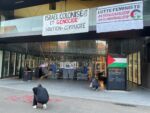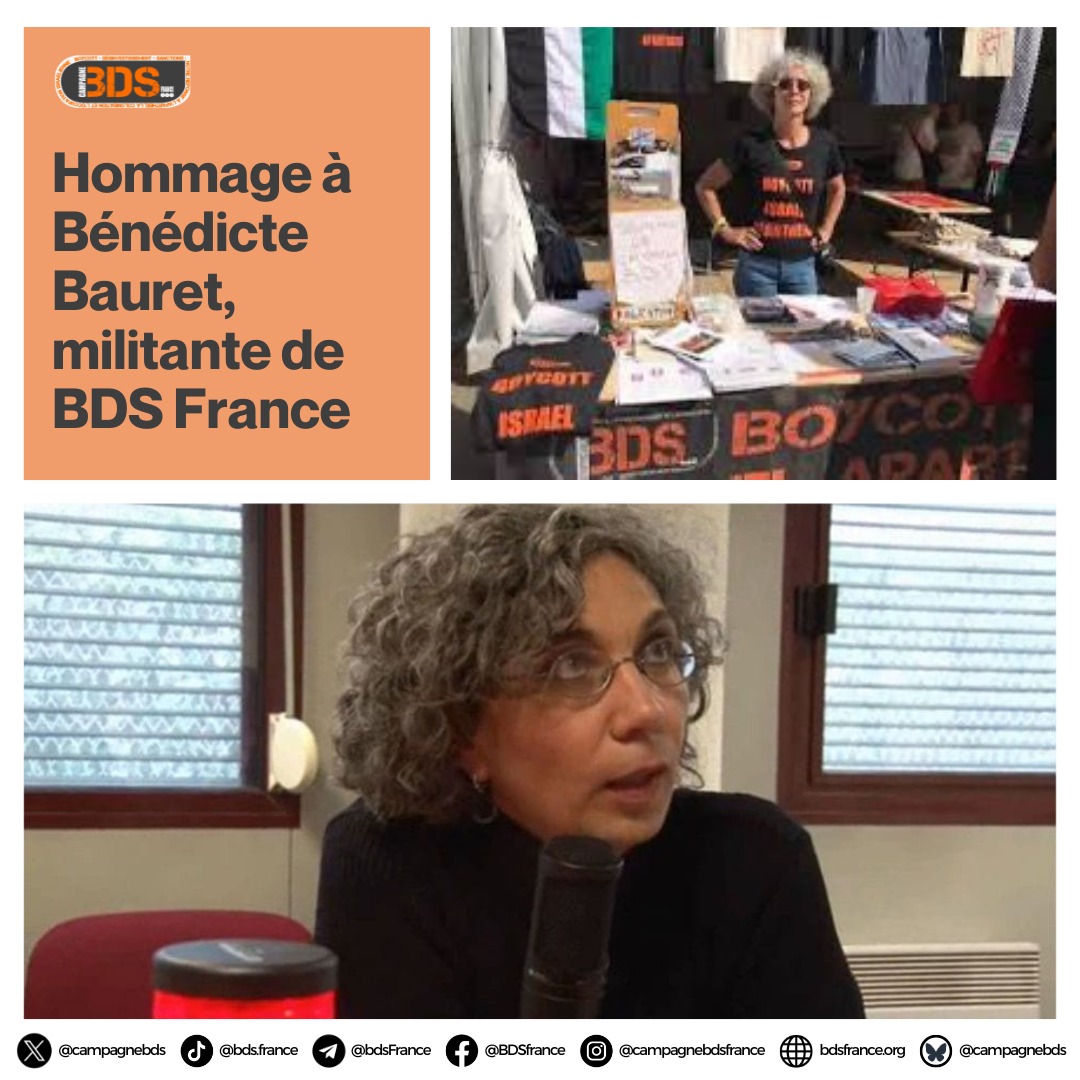AURDIP & BRICUP | 9 août 2014 |
à Ms Phyllis M Wise, Chancellor
University of Illinois at Urbana-Champaign
Madame la Chancelière,
Le British Committee for the Universities of Palestine (BRICUP) et l’Association des Universitaires pour le Respect du Droit International en Palestine (AURDIP), représentant des universitaires de Grande-Bretagne et de France qui recherchent une solution juste à la crise palestinienne, sont profondément troublés par l’information de Inside Higher Education selon laquelle votre institution, après avoir publiquement confirmé le recrutement du Professeur Steven Salaita comme maître de conférences titulaire (associate professor with tenure) à la suite de l’examen complet usuel, a maintenant annulé sa nomination. Selon cette même information, vous avez pris cette décision en raison de tweets du Professeur Salaita et d’autres déclarations publiques de sa part concernant l’offensive israélienne récente à Gaza.
Si cette information est exacte, votre action reviendrait à licencier un membre titulaire de l’université sans examen ou indication de motifs. Nous sommes particulièrement perturbés par le fait que l’expression protégée par la constitution d’opinions qui n’ont été diffusées ni au nom de l’université, ni à ses frais, puisse avoir servi de motivation au renvoi du Professeur Salaita.
Ayant soigneusement examiné les tweets mentionnés, nous avons été incapables d’y découvrir quoi que ce soit qui excède les limites de discours fermement exprimés et parfois satiriques, ou quoi que ce soit qu’un examinateur raisonnable et impartial pourrait considérer comme injurieux ou raciste. S’il y avait eu des questions à propos de la « civilité » ou de la « collégialité » du Professeur Salaita de nature à pouvoir compromettre son travail comme enseignant ou chercheur, nous imaginons difficilement qu’elles n’auraient pas été soulevées et discutées bien plus tôt dans la procédure de recrutement par le comité qui a vérifié son travail de recherche et son enseignement. Mais ni le « decorum », ni la « civilité », d’évaluation extrêmement subjective dans tous les cas, n’ont d’incidence sur le droit essentiel à la liberté d’expression. Blâmer ou censurer le discours politique restreint sérieusement l’étendue et la nature des expressions et des sujets autorisés à un universitaire participant à la sphère publique.
Le plus alarmant peut-être vient des informations selon lesquelles votre licenciement du Professeur Salaita serait une réponse aux pressions d’individus ou d’organisations opposés à ses points de vue politiques. De plus en plus, aux États-Unis (et en Europe), des individus ou des organisations interviennent dans les questions universitaires, affirmant défendre les sensibilités ethniques ou religieuses des étudiants contre des opinions qu’ils trouvent répréhensibles. Nous considérons ces interventions, qui ont l’effet de paralyser la liberté d’expression, comme des empiètements sérieux sur la liberté de recherche intellectuelle et de discussion qui est fondamentale dans la vie universitaire. Quiconque cherche à limiter la libre et entière expression d’une opinion, ou la représentation de perspectives auquel il ou elle est hostile, foule aux pieds un principe de la vie académique si fondamental que l’université serait sans lui inimaginable.
Si, comme nos informations l’indiquent, votre renvoi du Professeur Salaita est dû à de telles pressions, vous aurez manqué à votre devoir de défendre la liberté académique. Si votre décision était fondée sur le fait que le Professeur Salaita ait exprimé ses opinions dans la sphère publique, ou sur le contenu de ses opinions, vous avez empiété sur ses droits comme membre de la communauté universitaire et sur ceux que lui donne le premier amendement à la constitution américaine. Nous vous exhortons à revenir sans délai sur cette décision péremptoire et à vous excuser publiquement de la peine et de l’anxiété que vous avez causées au Professeur Salaita et à sa famille.
Bien à vous,
Jonathan Rosenhead, Professor Emeritus, London School of Economics, and chair, British Committee for the Universities of Palestine (www.bricup.org.uk)
Ivar Ekeland, président d’honneur de l’Université de Paris-Dauphine et président de l’Association des Universitaires pour le Respect du Droit International en Palestine (http://www.aurdip.fr)
Phyllis M Wise, Chancellor
University of Illinois at Urbana-Champaign
Dear Chancellor Wise,
The British Committee for the Universities of Palestine (BRICUP) and the Association des Universitaires pour le Respect du Droit International en Palestine (AURDIP), representing academics in Britain and France who seek a just resolution of the Palestinian crisis, are deeply disturbed by the report in Inside Higher Education that your institution, having publicly confirmed the hiring of Professor Steven Salaita as Associate Professor (with tenure) after the customary full review, has now annulled his appointment. According to the same report, you have taken this action as the result of Professor Salaita’s tweets and other public statements regarding the recent Israeli offensive in Gaza.
If this report is accurate, your action would be tantamount to firing a tenured faculty member without review or stated grounds. We are particularly disturbed that Professor Salaita’s constitutionally protected expression of his views, not disseminated in the name of the university or at its expense, may have served as the stimulus for his dismissal. Having carefully reviewed the cited tweets we have been unable to discover anything that exceeds the limits of strongly expressed and sometimes satirical modes of speech or anything that a reasonable and impartial reviewer could consider to be injurious or racist speech. If there had been questions about Prof. Salaita’s « civility » or « collegiality » that would have compromised his work as a teacher or scholar, we find it hard to imagine that they would not have been discovered and addressed far earlier in the hiring process by the committee that vetted his scholarly work and teaching record. But neither “decorum” nor “civility”, highly subjective judgments in any case, have any bearing on the essential right to freedom of expression. Censure or censorship of political rhetoric seriously infringes on the range and manner of allowable expression and subject available to any academic who participates in the public sphere.
Perhaps most alarming are reports that your dismissal of Professor Salaita comes in response to pressure from individuals or organizations opposed to his political views. Increasingly, individuals or organizations are intervening in campus matters across the United States (and Europe), claiming to defend the ethnic or religious sensitivities of students from views they find objectionable. We regard these interventions, which have the effect of chilling freedom of expression, as profound infringements of the freedom of intellectual inquiry and deliberation which is fundamental to university life. Anyone who seeks to limit the free and full expression of any viewpoint, or the representation of perspectives inimical to it, trespasses on a principle of academic life so fundamental that the university would be unimaginable without it.
If, as reports indicate, your dismissal of Professor Salaita is due to such pressures, you will have failed in your duty to defend academic freedom. If your decision was based on the fact or content of Professor Salaita’s expression of his views in the public sphere, you have infringed on his rights as a member of the university community and on his first amendment rights under the US Constitution. We urge you to reverse this peremptory decision without delay and to apologize publicly for the pain and anxiety you have caused Professor Salaita and his family.
Sincerely,
Jonathan Rosenhead, Professor Emeritus, London School of Economics, and chair, British Committee for the Universities of Palestine (www.bricup.org.uk)
Ivar Ekeland, président d’honneur de l’Université de Paris-Dauphine et président de l’Association des Universitaires pour le Respect du Droit International en Palestine (http://www.aurdip.fr)










